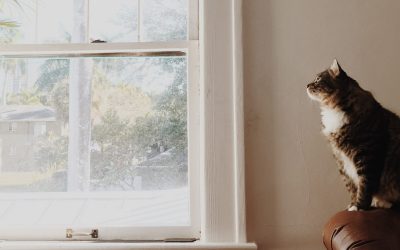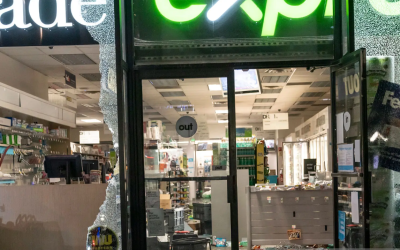Sustainability LEED, or Leadership in Energy and Environmental Design, is a 3rd party building certification program that supports projects that meet their environmentally or socially progressive guidelines. Window tint can help meet those guidelines and earn up to 10 LEED® credits for your next retrofit or new construction project. Commercial window tint qualifies for points in the following LEED credit categories:
01 Light Pollution Reduction (1 Point)
Window tint reduces nocturnal light pollution caused by sky glow, by preventing light trespass from commercial buildings at night. It improves nighttime visibility for occupants inside because window film helps to minimize light glare.
02 Optimizing Energy Performance (1-4 Points)
Solar window film improves the insulating performance of existing windows, reduces solar heat gain, and decreases HVAC run times and the dependence on electricity for light. Studies conducted by the U.S. Department of Energy indicated energy consumption decreased up to 15%.
03 Improving Thermal Comfort (1 Point)
Window tint can improve occupant comfort and productivity by balancing the temperature of the building. Window tint can also reduce dependence on HVAC systems to heat and cool, as well as minimize areas of solar glare at certain times of the day. Solar window tint can improve wintertime comfort by reducing heat loss.
04 Providing Daylight and Views (1-2 Points)
Eliminating or greatly reducing the need for closed blinds or shades, window tint allows the maximum amount of natural illumination into a commercial building. Buildings with large areas of energy-inefficient glazing, can retrofit existing windows with tint to maintain the connection between occupants and the outdoor environment, doing away with blinds or shades.
05 Environmental Quality UV Rejection (1 Point)
Window film reduces the damage caused by Ultraviolet (UV) rays through windows. A standard double pane window has an SPF factor of 18. Window Films have been recommended by the Skin Cancer Foundation® and it’s no wonder- some window films increase the SPF factor of a window to 1,000. If safety and security films are used to upgrade existing windows, they help protect occupants from injuries caused by shattered glass in an earthquake or other events.
06 Optimize Use of Alternative Materials (1 Point)
Not only does window film allow for the reuse of existing glazing materials, but sourcing local and regional materials reduces air pollution and transportation costs. In fact, customers with a project within 500 miles of the plant in Martinsville, Virginia may be eligible for LEED credits for use of regional materials.
Optimize Your Credits: Using window film can help you achieve LEED certification. After you register your project(s), you’ll have to provide documentation of which LEED credits you’re applying for. LEED is an integral part of retrofitting commercial buildings with energy efficient upgrades, and window films with varying VLTs and heat rejection properties can count towards LEED credits, typically in the categories of Innovation and Energy Reduction.
Ask us to help you select the best set of films for your building, so you can make an informed decision when you apply for your LEED certification.



